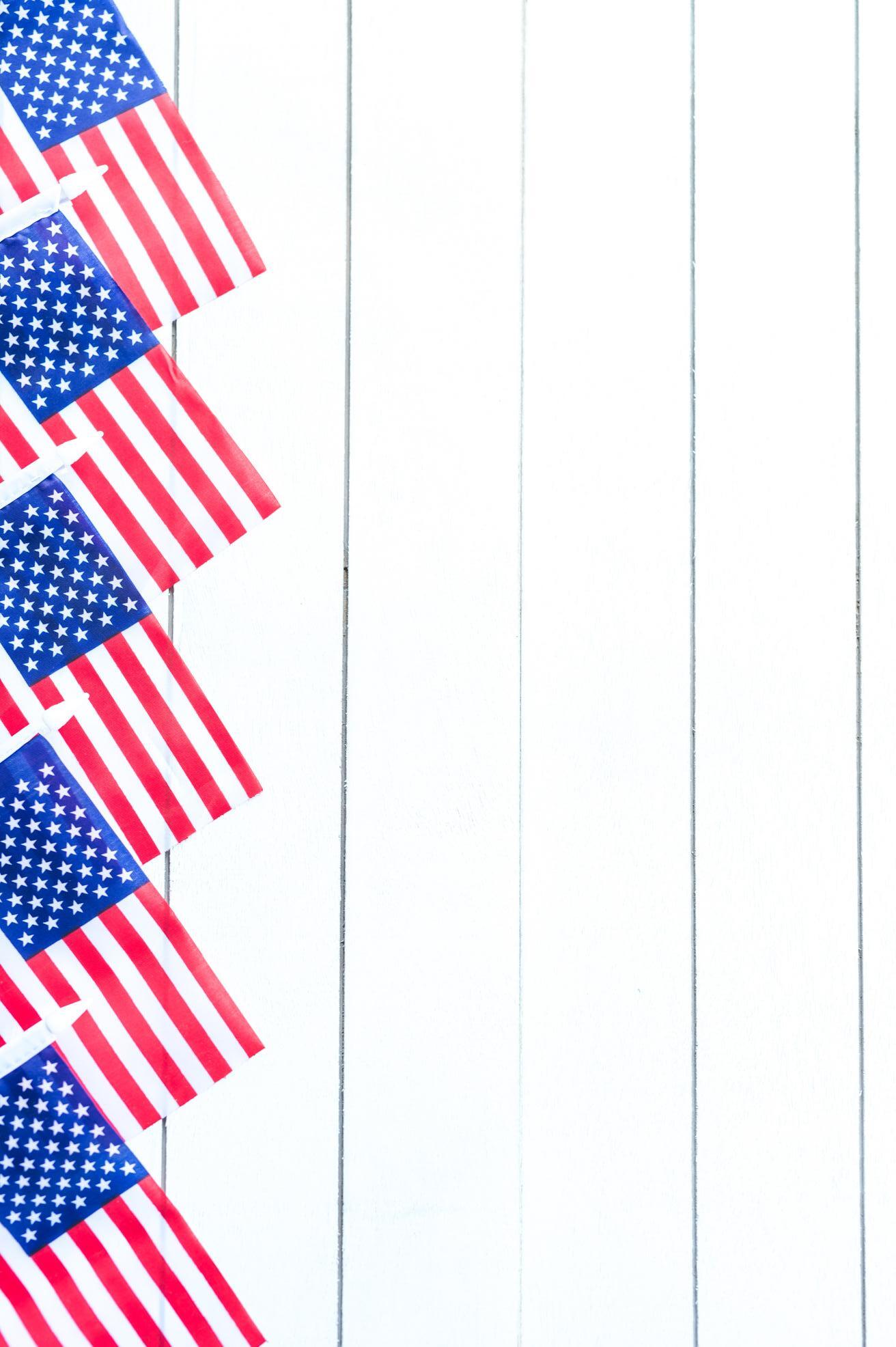






Who is eligible?
What can you fund?


When does it Start?
Where to find resources

How to get started?
Why is this for you?
61% of Black women self-fund their startup

Black Women-Owned Businesses need access to long-term funding, resources, and solutions that will provide their businesses an opportunity to grow and THRIVE.
Only 2% of venture capital funding goes to U.S. female-only founder teams

Here are a few ideas NVBCC believes are worth carrying into 2023:
1)Be a believer in the ability to finance your business with new “How-to” knowledge.
2)Be intentional about your business strategy actions every day.
3)Be stingy with your time as you build critical collaborative relationships.
4)Be careful with whom you share your Best Big Idea by adding an NDA/Confidential Agreement to your discussion.
5)Be persistent and consistent as you grow your business network.
6)Be grateful for all the "No’s" you may receive and use them to course correct.
Spring is time to eliminate, reorganize, and recommit to your goals. THRIVE Magazine believes in 10 ways to grow your business.
As you review the list, add them to your journal, create an action plan around each, and identify an "accountability partner."
7)Be forgiving of all those who can’t understand your dream, move on.
8)Be creative with your solutions as they are your intellectual property and revenue generators.
9)Be an expert at solving problems as they are your next new products or services.
10) Be proud to celebrate your accomplishments as being an entrepreneur and building a business is hard.
On behalf of all of us at the Northern Virginia Black Chamber of Commerce, we look forward to collaborating with you in 2023 because the NVBCC celebrates your ability to


Editor-in-Chief Robin McDougal
Managing Editor
Health & Wellness Editor Tonya Poindexter Jocelyn Johnson


Chair
Vice Chair
Fundraising Co-Chair
Fundraising Co-Chair
Past Chair
Advocacy Co-Chair
Membership Co-Chair
Events Chair
Government Contracting Chair
Communications Chair
Executive Director
Samuel Wiggins
Robin McDougal
Jameel Scott
Scott Price
Corey Holeman
Michelle Jefferson
Jocelyn Johnson
LeAnn White
Aaron Kelley
Tonya Poindexter White
Sheila Dixon
9
15
FINANCIAL AWARD
Senator Kaine sat down with the NVBCC THRIVE Magazine team to share a message of hope and possibility.
18 BANK CONFIDENCE
No financial institution is immune to an economic crisis. What about your bank?
21 25 27
FOOD INSECURITY IN OUR COMMUNITY

In 2023, food is getting more expensive, from shell eggs to the cost of fresh produce, meat, and milk.. What is your plan to control your budget?

Some suggest that with advancements in AI, machine learning, advanced robotics, and biotech, business is about to change.
Should You tap your assets to launch your start-up?
Thursday, April 27, 2023 (11:30 AM - 1:00 PM)
A unique opportunity to connect with like-minded professionals


Sponsored by



Wedding Services industry revenue is $70.3Billion in 2023.
According to research firm IbisWorld, the U.S. wedding business is a $70.3 billion industry run by small business. The services that make up the business of weddings include catering, flower arranging, music, baking, attire sale and rental, and town car and limousine rentals.
The Wedding industry was one of the victims of the COVID 19 by placing extreme pressure on many small companies except for the nuptial team, Bridal Babes.
In case you're new to Bridal Babes founders, Charles and Ashley Young started Bridal Babes after Ashley had a horrible time finding bridesmaid dress for her bridesmaids of all shades, shapes, and sizes. Her girls wanted to look and feel good standing next to her - this meant vibrant shades and form-fitting dresses that showed off their skin tones and curves!!

Ashley finally landed on a gown but the search for the perfect curvehugging, trendsetting gown was exhausting. After that experience, Ashley and Charles knew they wanted to create an easy way to shop for trendsetting and stylish bridesmaid dresses - thus Bridal Babes was born!


Season 14, 2022


Bridal Babes, is the first bridal tech company for women with curves and or women of color. Ashley shared with the THRIVE Magazine crew that she has really seen tremendous success because Bridal Babes found a population that has historically been overlooked by the bridal industry. The secret to their success hinges on the blend of vibrant colors, trendsetting designs, and most importantly, the showcasing of women of all shaded shapes and sizes.
Bridal Babes dresses have connected with not only among black women, but anyone who's really looking for something bold and different. The entire business ecosystem is structured to be able to walk customers through the bridesmaid shopping experience by being online and Instagram or fall in love with our page. Brides have the option to connect virtually with for a consultation or join one of our free Zoom calls.
 Congratulations Bridal Babes for your Shark Tank win!
Left to Right, Kevin O'Leary, Ashley Young
Congratulations Bridal Babes for your Shark Tank win!
Left to Right, Kevin O'Leary, Ashley Young

Unapologetically Ambitious is a treasure trove of strategic wisdom and practical tips, brought to life through amazing storytelling that will leave the reader inspired, empowered and appreciative. The book deals with the realities of setbacks, trade-offs and societal norms in an authentic way, while illustrating that strength and success often lie in mindset and the team you choose in life. The closing chapter serves as a master guide to navigating life, providing a penultimate takeaway for any reader early in their journey to put the wisdom and experience of the Archambeau’s lessons learned into immediate action!
 —- Brad D. Smith, Executive Chairman, Intuit
—- Brad D. Smith, Executive Chairman, Intuit
Full of empowering wisdom from one of Silicon Valley's first African American CEOs, this inspiring leadership book offers a blueprint for how to achieve your personal and professional goals, drawn from the author's own compelling story of how she weathered life's difficulties to build massive success.
Shellye Archambeau recounts how she overcame the challenges she faced as a young black woman, wife, and mother, managing her personal and professional responsibilities while climbing the ranks at IBM and subsequently in her roles as CEO. Through the busts and booms of Silicon Valley in the early 2000s, this bold and inspiring book details the risks she took and the strategies she engaged to steer her family, her career, and her company MetricStream toward success. Through her journey, Shellye discovered that ambition alone is not enough to achieve success


“Small businesses are the heart of every community and the American economy. I was glad to meet with leaders from the Northern Virginia Black Chamber of Commerce, Inc. in Manassas to celebrate federal funding I secured for the organization to grow Black-owned small businesses. We also discussed some of the challenges small businesses face and ways I can continue to support their critical work.”
- Senator Tim Kaine



Tim Kaine has helped people throughout his life as a missionary, civil rights lawyer, teacher, and elected official. He is one of a few dozen people in American history to have served as a Mayor, Governor and United States Senator. Senator Kaine prioritizes his work to help everyday Virginians.
Recently, Senator Kaine sat down with the NVBCC THRIVE Magazine team to share a message of hope and possibility. Take a moment to hear Senator Tim Kaine
Image: Office of U.S. Senator Tim Kaine















 By Tonya Poindexter White
By Tonya Poindexter White
No financial institution is immune to an economic crisis. This was evident with the recent collapse of Silicon Valley Bank (SVB). The effects of this collapse rippled through a multitude of small businesses that relied on this institution for payroll, operations, and other pertinent business expenditures. Many of the businesses that were patrons of SVB did not see this coming and found themselves at a loss before the government stepped in to assist. However, there were many companies that were prepared for such a disaster and had a plan in place for a situation such as this.
Preparing for financial failures that are beyond a business’s control can be difficult, but it is possible. Diversification is key to always being prepared for any bank’s unforeseen financial failure. Maintaining relationships with multiple banks, depending on the size of the cash balance, is advisable. To manage risk, it is best to maintain bank relationships across a mix of large and regional banks.
The Wall Street Journal also advises the following:
· Add beneficiaries to your accounts: Designating specific people or nonprofit organizations to inherit funds after the account owner’s death is another way to increase protection. FDIC insurance generally will cover up to $250,000 in deposits for each unique beneficiary. For example, a trust account with five beneficiaries would be insured up to $1.25 million.

· Deposit swapping: One way to manage the multiple accounts necessary to increase FDIC coverage is to have your bank do it for you. Using a network allows customers to get the insurance benefit of having multiple banks while dealing with only one bank. Deposit swapping networks work with multiple banks to separate large deposits into amounts below the federal insurance limit and can protect balances up to $150 million.
· Credit unions: Credit unions are nonprofit financial institutions that are an alternative to commercial banks. These accounts aren’t FDIC insured, but they have their own form of federally backed deposit coverage through the National Credit Union Share Insurance Fund, with the same $250,000 limit.
· Bonds: Though U.S. Treasurys aren’t covered by FDIC insurance, they are backed by the full faith and credit of the federal government. In other words, buying U.S. bonds is a low-risk alternative to stashing money in a bank.

NVBCC member FVCbank was contacted to learn how they work to prevent a similar event from happening to their institution. FVCbank Chairman and CEO David Pijor provided the following comments:
“Unlike SVB, our bank does not hold a high percentage of government bonds. FVCbank has a business model that is significantly different from SVB. FVCbank has no crypto market exposure or tech company financing. We adhere to a conservative operating philosophy and have a diversified portfolio of deposits, which we deploy in loans to local businesses. We are well-capitalized, maintain a sound credit discipline, and abide by strict regulatory guidelines to ensure the safety and security of our customer deposits.”
Ultimately, financial institutions’ failures will occur. While this can be frightening for business owners and individuals alike, the most important thing to remember is, DO NOT PANIC. Withdrawing money from banks that were not affected by the collapse will further destroy the economy and cause further economic challenges, which, if not managed correctly, could lead to catastrophic results across the country. It is best to maintain a level head and always keep liquid assets in case of emergencies.

Includes 3 members
10% discount on All events
2 seats Annual Corporate Summit
1 THRIVE Magazine Full Page Adv.
3 Social Media Shout-outs
1 NVBCC Collaborative Event
In 2023, food is getting more expensive, from shell eggs to the cost of fresh produce, meat, and milk. Since the beginning of the pandemic, it's been challenging to find affordable fresh foods. Although there isn't a genuine food shortage in Northern Virginia like that of other states and cities in the US are experiencing, we are facing more expensive foods, with fresh fruits and vegetables becoming more and more expensive.
Throughout the country, we have seen an increase in food deserts in inner cities. This is where fresh fruits and vegetables aren't as accessible as they are in wealthier areas.
 By: Jocelyn Johnson, MSN, LDN, CNS
By: Jocelyn Johnson, MSN, LDN, CNS
Although no food deserts exist in the affluent Northern Virginia area, the food cost affects every household's bottom line in their food budget.
Yet, fresh and affordable foods can be challenging and difficult to obtain for those with lower socioeconomic status (SES) households. The lack of affordable foods in higher SES areas is known as food insecurity, where food is abundant yet extremely expensive. In 2021, 12.5% of households in the US were considered to be food insecure. This statistic is astounding because the US is regarded as one of the wealthiest countries in the world.
Northern Virginia is one of the wealthiest areas in the country, with six counties in Northern Virginia; Fairfax, Loudoun, Prince Williams, Arlington, Alexandria, and Fairfax City. All of these counties have small populations that are food insecure. Anywhere from 3.4 to 10% of these populations are dealing with food insecurities. Many of these residents use local food banks or food pantries.
The Northern Virginia Family Service (NVFS) (located in Prince Williams County) has a food resource center to assist foodinsecure families. The resource center offers emergency food assistance to families, nutrition information, and strategies for shopping for food on a budget.

In addition, there are food banks within all the counties where you can find assistance, donate food or volunteer time, and sweat equity to serve the community at your local food pantry or food bank. Most of these services are offered to the public with no questions asked. Many food pantries or banks have a first come, first served policy. There are too many to mention in this article. However, you can begin with a quick google search for your local food bank or food pantry and inquire about services or their volunteer needs.


INGREDIENTS:
20 Yukon gold potatoes (organic, cut in ½ inch cubes)
4-5 cups water or chicken broth (divided)
1 tablespoon butter (organic, unsalted)
1 tablespoon avocado oil (organic)
½ -1 cup white wine (organic if possible)
2 large leeks (organic, sliced thin)
1 yellow onion (organic, small dice)
1 stalk celery (organic, sliced thin)
2-3 garlic cloves (organic, minced)
2 teaspoon pink Himalayan salt (divided)
1 bay leaf
1 sprig thyme
1 lemon (organic, juiced for taste)
½ teaspoon black pepper (organic) to taste
This hearty soup is warming to eat during the fall and winter months. However, it is light enough to have on a cool spring night for a light dinner.
Add the cut potatoes and 1 pinch of salt to a stockpot, add water or broth, and bring to a gentle boil for 15 minutes or until the potatoes are fork-tender. In a large skillet, melt the butter on medium-high, then add avocado oil. Bring the burner's temperature to medium and add the onions, leeks, and celery, then add ¼ teaspoon or a pinch of salt. Sautee this mixture of vegetables until the onions are translucent, add the garlic and 1 pinch of salt, cook on low for 5 minutes, add wine, and allow the wine to cook out for 2-3 minutes.
Drain the potatoes; make sure a to save the cooking liquid. Allow potatoes to cool. Return the potatoes to the stockpot once the vegetable mixture has cooled. Then add the mixture to the stockpot, and add bay leaf, thyme and half the cooking liquid. Bring this mixture to a boil, then reduce the heat to low and simmer for 5 minutes. Add the pepper and 1-2 tablespoons of fresh lemon juice. Taste and adjust with more pepper or lemon.
Lastly, remove bay leaf and thyme stem.
Serve with croutons or caramelized onions to garnish.
Yields: 8-1 cup servings
Copyright 2022. Original recipe J. Johnson
Peas are a good source of protein and high in vitamins and minerals. Combining fresh or frozen peas with mint make this a classic soup. Delicious served hot or cold.

Ingredients
1 tablespoons unsalted butter
1.
1 cup chopped leeks, white and light green parts
(approximately 1 leek)
½ cup chopped yellow onion
2 cups vegetable or chicken stock
1 (10 oz) package) package frozen peas
⅓ cup chopped fresh mint leaves, loosely packed
¼ cup fresh flat leaf parsley, loosely chopped
1 teaspoon sea salt
¼ teaspoon freshly ground black pepper
¼ cup crème fraîche, plus more for garnish
¼ cup freshly chopped chives, plus more for garnish
2 teaspoons lemon juice
Directions:
Heat the butter in a large saucepan, add the leeks and onion, and cook over medium-low heat for 5 to 10 minutes, until the onion is tender. Add the stock, increase the heat to high, and bring to a boil. Add the peas and cook for 2 to 3 minutes, until the peas are tender. Turn off the heat, add the mint, parsley salt, and pepper.
Puree the soup in batches: place 1 cup of soup in a blender, place the lid on top, and puree on low speed until smooth. With the blender still running, open the vent hole in the lid and slowly add more soup until the blender is three-quarters full. Pour the processed soup into a large bowl and repeat until all the soup is pureed. Whisk in the crème fraîche, chives and lemon juice and taste for seasoning. Garnish servings with a small dollop of crème fraîche sprinkled with fresh chives and serve.
Note for a chilled soup: after soup is completely pureed, cool it down in an ice bath stirring continuously. Add the crème fraîche, chives and lemon juice and adjust seasonings with salt and black pepper. Chill in the fridge until cold then serve.
Preparation time: 20 minutes
Yield: 3 to 4 servings
Recipe adapted by Patrice Savery from Barefoot Contessa at Home at http://www.foodnetwork.com/recipes/ina-garten/fresh-pea-soup-recipe.html#communityReviews, author Ina Garten, 2006.

Croutons add fabulous crunch and flavor to soups and salads alike. They can be made in all sizes from practically any kind of bread and flavored with a wide range of flavorful seasonings including herbs and spices, olive oil, butter, garlic and cheese. Croutons can also be on the sweeter side of the flavor spectrum - just pair them with appropriate dishes.
Ingredients
Dayoldbreadofchoice(white,wheat,rye,pumpernickel,etc.).
Fatofchoice(meltedbutter,oil,duckfat,baconfat)
Preferredseasonings(herbs,spices,cheese,garlic,citruszest,etc.)
Salt&pepper
Preheatovento350degreesF.
To make dried bread crumbs, placed the cooled, seasoned croutons in a food processor and process until desired texture. [Fresh bread crumbs are made simply by using the cubed/torn bread and processing them in the food processor;freshanddriedbreadcrumbscanbecombinedtotoparangeofdishes.]
Note:Agoodformulatouseisabout2cupsofbreadcubeswith1to2tablespoonsofbutteroroliveoil.
Preptime:15minutes
Baketime:25-35minutes
ReprintedforclassroomusefromChef'sPantryClass,byPatriceSavery(Fall2015).




Does the use of AI help or hurt your business?
Is ChatGPT the right tool for your growing business?

ChatGPT is a disruptive technology; that is, “technology that changes a workflow, disrupting old ways of doing things and generating new ones.” Some suggest that with advancements in AI, machine learning, advanced robotics, and biotech, we have entered into the Fourth Industrial Revolution. Given this, the extent to which ChatGPT (and similar LLM) will complement or compete with white-collar and knowledge workers remains to be determined.
A 2019 report from The Brookings Institute, indicates most industries will be impacted by AI. However, it also suggests workers with “graduate or professional degrees will be almost four times as frequently exposed to AI as workers with a high school degree.” A 2020 CommericalCafe study of U.S. white collar jobs and compatibility with automation, found that “60% of white-collar jobs were less than 50 percent compatible with automation.” Also, a 2021 report by the World Economic Forum, suggests that 85 million jobs across industries, will be lost to AI-related change and innovation by 2025. However, the report also predicts some 97 million new jobs will be created within the same timeframe.

Chat Generative Pre-trained Transformer (ChatGPT) is an artificial intelligence (AI) large language model (LLM) released by the company, OpenAI, last year. ChatGPT is “trained” on existing material from the Internet, books, and the like and is quickly able to generate articulate (“human-like”) responses from user prompts. Microsoft recently announced a onebillion-dollar investment in OpenAI. Google and other LLM creators are entering the field as well. With the introduction of ChatGPT, there has been speculation about how its proliferation may affect white-collar and knowledge workers.
The wider impacts of ChatGPT and similar technology remains to be seen. Two things are clear, however. First, LLMs have significant liabilities that may affect proliferation in the workforce. Second, AI will impact specified work tasks and not necessarily jobs or work roles in their entirety.
Host of the Unsung Science Podcast, David Pogue, explored some important questions about ChatGPT (and similar AI) in a recent episode . First, while AI can readily write essays, poems, and the like, podcast guest, Professor June Rosenzweig of Harvard University, asks, “Where do we figure out what we think?” Second, ChatGPT is unable to distinguish fact from fiction as it is trained on information from the Internet, which may or may not be factually based. How do we deal with, what Stanford
UniversityProfessor Erik Brynjolfsson, calls “misinformation factories?” Ethical questions abound as well about considerations such as bias in the generated content. Third, there is the notion of “automated plagiarism,” with ChatGPT-derived responses being generated from existing information and some creative works written by real people. Finally, are we somehow mistaking writing for creativity since LLMs cannot really think?
How do we deal with these realities, especially when ChatGPT garnered more than one million users shortly after being released to the public? OpenAI also recently announced a commercial version of ChatGPT, ChatGPT Plus, which will be available for $20 per month. The use of ChatGPT is increasing steadily as we are concerned about misuse. The company developed a “decoder,” which, with some limitations, is able to detect text written by ChatGPT. Princeton University student, Edward Tian, created GPTZero, which is also able to detect AI-generated text. Similar detectors exist as well, and OpenAI’s Sharing and Publication Policies clearly indicate that users be transparent in disclosing any use of AI. Is this enough?


Erik Brynjolfsson, the Jerry Yang and Akiko Yamazaki Professor and Senior Fellow at the Stanford Institute for Human-Centered AI (HAI) likens the use of ChatGPT to a calculator—the calculator for writing. He states that ChatGPT will “augment our ability to write.” He also proffers that ChatGPT may help eliminate rote work and offer workers opportunities to be more creative. This brings us back to the notion of job tasks. A report from the Brookings Institute outlines the following, “A job is a collection of tasks, and even under the most aggressive scenarios, it is unlikely that machines will substitute for all tasks in any one occupation.”
At the “AI and White Collar Jobs” panel at the 2023 World Economic Forum Annual Meeting in Davos, experts agreed that white collar jobs are changing, not necessarily being lost. Panelist Erik Brynjolfsson intimated we are in a period of “the great reconstruction of work,” where the emphasis needs to center on “keeping humans in the loop” and enhanced job quality. He also stated that about one billion knowledge workers exist globally and anywhere from 15% to 70% of computer work has the potential to be automated. In addition, Brynjolfsson suggested what is necessary is determining where humans have a comparative advantage (relative to AI) with respect to certain job tasks such that the technology compliments human work products versus replaces them.
The Davos panelists were in agreement that “reskilling” is critical. According to a recent Forbes article, reskilling is, “providing training to help an employee move into a different job or pursue a different career path.” The counterpart to reskilling is upskilling, which is “providing education and training so employees can improve existing skills and learn advanced skills that help them do their job better or more efficiently.” According to Brynjolfsson, “human capital is a $200 trillion asset in the United States,” and it is important to have employees maximize their potential. Fellow Davos panelist, Mihir Shukla, founder of Automation Anywhere, suggests that it is short-sighted to think that employees can only perform the jobs they are currently occupying.
The substantive impact of AI on white collar and knowledge workers is yet to be determined. New technologies can both create and eliminate jobs. Reskilling and upskilling are important mechanisms for preparing workers to complete higher order tasks and use a greater level of their skills and creativity at work. Even with the introduction of ChatGPT4 later this year, which, David Pogue advises, will be trained on 500 times the information as the current ChatGPT3, it remains unlikely that AI will supplant human thought, creativity and emotional intelligence.




The Northern Virginia Black Chamber of Commerce (NVBCC) is unique among networking groups targeting black-owned businesses. The Chamber connects members to companies, fellow entrepreneurs, public and private lenders, and others who can help them advance their businesses. We inform key stakeholders about the economic, legal policy, social, cultural, and other factors that impact black-owned businesses. info@northernvirginiabcc.org or Call 703.442.4472.

Funding your business is what keeps your entrepreneurial dream alive. Many of us have launched an incredible idea, service, or product with nothing more than our personal savings that I refer to as "Milk Money". For those of you who have never heard the term, milk money refers to the small amount children were given by their parents to buy milk for lunch at school.
According to the Small Business Administration, about 33% of small businesses fail in the first two years, around 50% go belly up after five years, and roughly 33% make it to 10 years or longer. Although there are several reasons for businesses failing, the most common reason is a lack of capital or funding.
A founder of a start-up or small business is responsible for designing an effective funding strategy to ensure their venture is secure. This strategy is a multifaceted approach with a portfolio of techniques. One technique to add to your strategy portfolio is to leverage your assets.
Assets are often used as a measuring stick for the value of a company.
An asset is a resource with economic value that an individual/company owns or controls with the expectation that it will provide a future benefit. The idea, it is something that, in the future, can generate cash flow, reduce expenses, or improve sales.
According to Investopedia, personal assets can include a home, land, financial securities, jewelry, artwork, gold and silver, or your checking account. Business assets can include such things as motor vehicles, buildings, machinery, equipment, cash, and accounts receivable. A very important class of assets include things like intellectual property (e.g., patents or trademarks), contractual obligations, royalties, and goodwill.
Learn more about the various types of assets and how they might support your business funding.
















